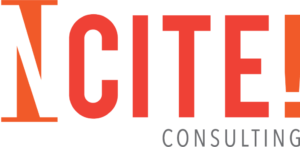Let’s be real—nonprofit board service isn’t just about showing up to meetings and nodding along. The best board members know that their role is active, strategic, and essential to an organization’s success. But far too often, I see board members who want to be helpful but simply don’t know what they don’t know.
So, whether you’re a nonprofit leader looking to strengthen your board or a board member wanting to step up your game, here’s a gut check—can your board members confidently answer these 10 questions? If not, it’s time to get everyone on the same page.
1. What is the organization’s mission, and why does it matter?
This should be an easy one. But you’d be surprised how many board members stumble when asked to clearly articulate the mission. A board member’s job is to champion the cause—not just in the boardroom but out in the community, with potential donors, and in everyday conversations.
2. How does the organization fulfill its mission?
Knowing what an organization stands for is great, but board members also need to understand how the work actually happens. What programs, services, or initiatives make the mission a reality? And more importantly—are they effective?
3. What are the key financial realities of the organization?
You don’t need a finance degree to serve on a nonprofit board, but you do need to understand where the money comes from, where it goes, and what challenges exist. Board members should be able to answer:
- What’s the current budget?
- What are the major revenue streams?
- What financial risks or concerns should we be aware of?
Because let’s be honest—if you’re approving budgets but don’t really understand them, that’s a problem.
4. How does the organization measure success?
Impact matters. Board members should be familiar with how the organization tracks success and whether programs are actually achieving their intended outcomes. This might mean looking at donor retention, community impact, financial sustainability, or other key performance indicators. If your board can’t answer “Are we making a difference?” it’s time for a deeper discussion.
5. What are my legal and ethical responsibilities as a board member?
Being a board member isn’t just an honorary title—it comes with real fiduciary duties:
- Duty of Care – Making informed, thoughtful decisions.
- Duty of Loyalty – Acting in the best interest of the nonprofit.
- Duty of Obedience – Ensuring the organization follows its mission and complies with laws.
Translation? If you’re on a board, you’re responsible for making sure the organization is ethical, financially sound, and mission-driven. No excuses.
6. How does the board support fundraising efforts?
The dreaded F-word—fundraising. But here’s the deal: every board member has a role to play in bringing in financial support. That doesn’t mean everyone has to ask for money directly, but board members should be:
✅ Making personal contributions (even if it’s small)
✅ Helping identify and connect with potential donors
✅ Attending fundraising events
✅ Thanking donors and funders
If your board members think fundraising is somebody else’s job, it’s time to shift that mindset.
7. What role does the board play in strategic planning?
Nonprofit boards aren’t just there to react—they should be actively helping shape the future of the organization. Board members should be involved in:
- Setting long-term priorities
- Evaluating organizational goals
- Ensuring resources align with the mission
If board meetings only focus on what’s happening now and not where the organization is going, there’s work to do.
8. How does the board support and evaluate the executive director/CEO?
The relationship between a board and an executive director can either be a powerful partnership or a frustrating tug-of-war. Board members should:
- Clearly understand the ED’s role
- Provide support without micromanaging
- Set clear expectations and conduct annual performance evaluations
A strong board-ED relationship is built on trust, transparency, and mutual accountability.
9. What policies and procedures does the board follow?
Board governance isn’t the most exciting topic, but it’s crucial to keeping an organization running smoothly. Board members should be familiar with:
- Conflict of interest policies
- Bylaws and operating procedures
- Board meeting expectations
If these things exist but no one on the board has read them in years, that’s a red flag.
10. Am I personally contributing to the success of the board?
This one’s big. A great board isn’t just a collection of warm bodies—it’s an engaged, high-functioning group of people who actively bring value to the organization.
Each board member should ask themselves:
✅ Am I showing up prepared for meetings?
✅ Am I using my skills, expertise, or connections to further the mission?
✅ Am I invested in the success of this organization beyond just my board term?
The best board members know that their role is active, not passive.
Time for a Board Check-In? Let’s Talk.
If your board members can confidently answer all 10 of these questions—congrats! You’ve got a strong, informed board. But if some of these questions left you feeling a little uneasy, don’t panic—that just means there’s room for growth.
Board education isn’t a one-and-done thing—it’s an ongoing process. If you’re looking for ways to strengthen your board, build engagement, or improve board-staff relationships, let’s chat.
Book a call with me here, and let’s figure out how to get your board fully engaged, informed, and ready to lead with confidence.
Here’s to stronger boards and bigger impact!
Kari Anderson, Principal
Incite Consulting

